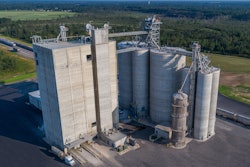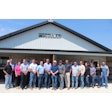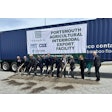Joint projects aim to lower greenhouse gas emissions, improve land and water use, and empower smallholder farmers to reduce food losses and address the challenges of climate change
Rabobank has signed a new partnership agreement with The Food and Agriculture Organization of the United Nations (FAO), with the intention of helping targeted rural communities benefit from more inclusive, sustainable food systems. It also envisages jointly exploring the use of innovative financial instruments to bridge financing gaps in emerging markets and to promote sustainability in food systems investments.
FAO and Rabobank will work with key food and agriculture sectors on a series of projects designed to help lower greenhouse gas (GHG) emissions, improve land and water use, and empower smallholder farmers to address the challenges of climate change and reduction of food losses. Special attention will be paid in ensuring the inclusion of poor, vulnerable and marginalized groups, including women and youth.
The collaboration will begin with a review of the dairy sector in two pilot countries, India and Kenya, with a view to reducing food losses in the sector and promoting a transition to more sustainable food systems. The dairy sector has an important role to play in food systems transformation, as it contributes to food security and nutrition and provides livelihoods for a number of actors along the food value chain. Though dairy production also contributes to greenhouse gas emissions, it holds huge potential for improvement.
The projects undertaken in the context of the partnership will support FAO’s Hand-in-Hand initiative, which matches donors and recipients to support tailor-made, country-led efforts to assist the most vulnerable populations. The private sector is a key partner in the initiative, and Rabobank, as a global leader in food and agriculture financing and sustainability-oriented banking, is well-placed to assist in designing such interventions.
“The new partnership between FAO and Rabobank will serve to support our work to transform food systems so that they can become more inclusive and sustainable, especially within the context of the COVID-19 response and the need to build back, better. In particular it will focus on improved land and water use, lowering greenhouse gas emissions and food loss while increasing the resilience of farmers and small-scale businesses,” said FAO Director-General QU Dongyu. “I also wish to thank Rabobank’s support to FAO’s Hand-In-Hand Initiative which aims, through specific country-led interventions, to assist the most vulnerable populations,” he added.
COVID-19 has shown us that our food systems need a ‘new normal’,” said Berry Marttin, Board Member of Rabobank. “We need to identify and analyze finance gaps and debate short and long supply chains. We must focus on innovative ways to reward sustainability investments, such as implementing ‘nature costing’, a pricing structure that reflects food’s environmental impact. Rabobank is the leading bank in food and agriculture, but also a cooperative bank. We believe in working together. By partnering with FAO, we can mobilize our complementary expertise and networks to contribute to real food system transformations.”
The partnership will also map agricultural supply chains to identify opportunities for green finance hotspots in emerging markets, and explore the possibility of environmental or climate finance programming incentives that reward farmers and small agribusinesses for adopting GHG emission reduction technologies and practices.
Through its work, FAO advocates for sustainable food systems that ensure food security and nutrition for all without compromising the economic, social and environmental conditions which are necessary to generate food security and nutrition for future generations. Food systems both contribute to and are affected by extreme weather events as associated with climate change, land degradation and biodiversity loss, so any response to these challenges requires a systems-based approach that addresses the range and complexities in a holistic manner.
FAO has previously collaborated successfully with the Rabobank Foundation, a corporate foundation funded by the bank, on projects aimed at improving the incomes of smallholder farmers in Ethiopia, Kenya and Tanzania through better access to financial tools and investments.














